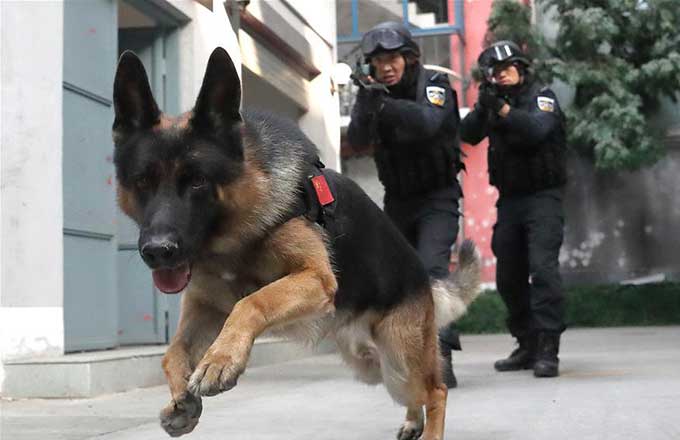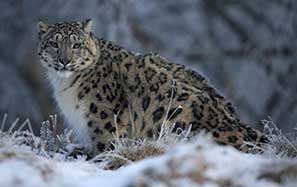China, UK start three-year agricultural collaboration project
China and the UK started a 1.3 million pound collaboration project on sustainable agricultural technology research in July, marking the latest addition to farming cooperation between the two countries.
The three-year project, with input from six universities, focuses on improving the efficiency of agricultural remote sensing so that farmers in China can apply water and nutrients to areas of farmlands that need them the most, based on data gathered by remote sensing tools. The project started with the Chinese researchers' first UK visit on July 18.
Such technology is considered especially important for China's farming industry, and the project is exploring the use of such technology for sustainable farming in a way it has not been used anywhere in the world.
By the third year, researchers expect to apply the technology in pilot areas of Chinese agricultural land, and if the results prove successful then wider deployment will take place.
"Working with China in this research project is very important because China has large areas of farmland, so the results can have a wide impact," said Wen-Hua Chen, a professor in autonomous vehicles at the University of Loughborough, who is leading a team at his university to participate in the research.
"In addition, these solutions from our research will lead to more efficient use of water and nutrients and hence reduce pollution, which is a very important goal for China and globally," Chen said.
The research will first develop a method for different remote sensing tools, including satellite and drones, to coordinate in monitoring crops, thus identifying areas that need water and nutrients the most, so these can be selectively applied improve environmental sustainability.
The research will also design flight paths for the unmanned aircraft so that they can avoid physical obstacles like mountains. The technology will also produce a system to selectively present information about farmland to the farmers, so they do not need to go through all images to identify patches of land with concerns.
This so-called smart farming project is the latest part of established agricultural collaboration between the UK and China, which picked up momentum with the UK-China Science Year in 2005, and an agricultural research conference was hosted in Shanxi.
Currently China is the largest contributor of world agricultural output, and in 2014 China contributed 21.06 percent, followed by India with 7.68 percent.
Another milestone was reached in 2008 when a memorandum of understanding for agricultural collaboration was signed between the Chinese Ministry of Agriculture and the UK's Department for Environment, Food & Rural Affairs.
In the same year, the China-UK Sustainable Agriculture Innovation Network (SAIN) was established to support agricultural collaboration.
Currently 14 universities are involved in Sain network's research projects and already there are more than a dozen joint research projects on agriculture between the two countries, with the goal of translating the results of the research into policy and farming practices.
Existing projects cover areas such efficient use of agricultural resources, making farming resilient to climate change and the reduction of water and air pollution. Some results have already been reported to China's National Development and Reform Commission.
Lu Yuelai, Head of Secretariat of the SAIN network, said UK agriculture sustainability development started earlier and the UK already has a lot of experiences to share with China; at the same time significant investment into agricultural research by the Chinese government has meant China is now leading in a number of areas including bio-technology, environmental protection and remote sensing technology.
Pete Smith, a professor of soils and global change at the University of Aberdeen, added that the UK's agricultural sector has undergone significant changes over the past 20-30 years in reducing its impact on the environment, partly due to compliance with increasingly strict EU legislations, and the UK is able to share its experiences with China.
Meanwhile, China's unique challenges in agricultural practices also make joint academic research significant. China's agricultural challenges include its large population on limited land, and China's fast changing dietary preferences, Smith said.
Smith's team is currently working with other British and Chinese universities on a three year project to increase crops' ability to take in more nitrogen, so that less nitrite content will spread to the air, because nitrogen is one of the major greenhouse gases causing air pollution in China.
To contact the reporter: cecily.liu@mail.chinadailyuk.com
- Is it a thing? 10 odd jobs where you can make good money
- Message on a bottle: Mineral water company launches drive to find missing children
- Sun Yat-sen champion of national integrity, unity: Xi
- Four killed, two injured after house collapses in C China
- Cross-Straits forum held to commemorate Sun Yat-sen





















